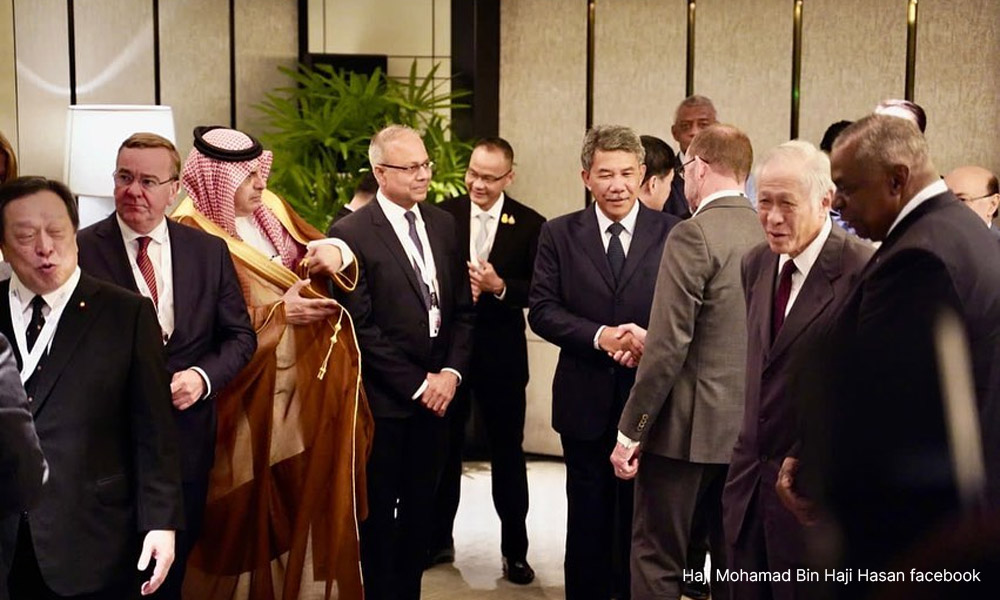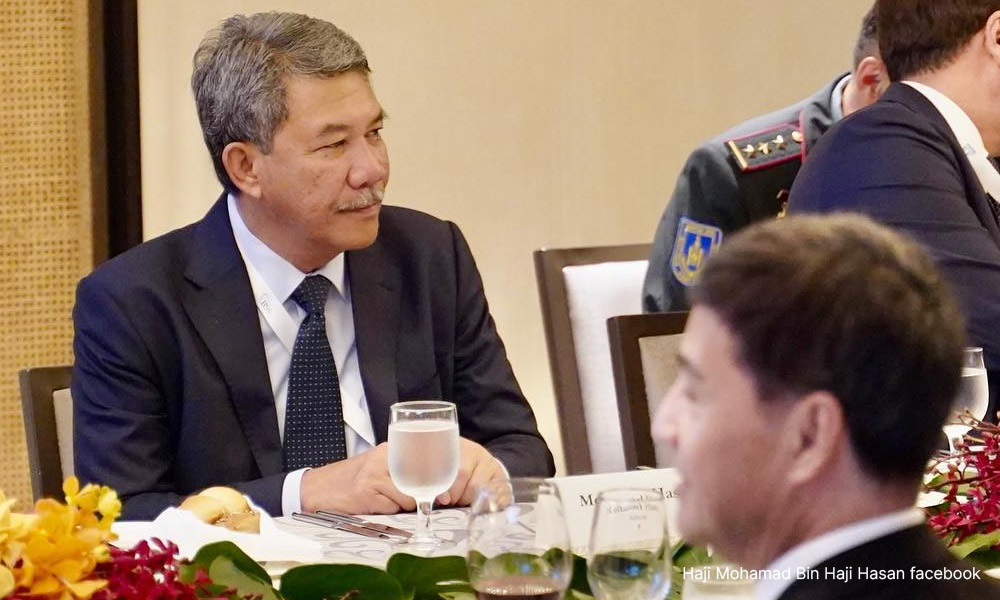There is no doubt that political stability in Malaysia is important in dealing with the situation in Asia Pacific because the development of national defence capabilities takes a long time.
This requires consistent policy support to ensure the implementation of the Defence White Paper runs smoothly and is on schedule in ensuring that "Malaysia remains sovereign, safe and prosperous".
Defence Minister Mohamad Hasan said this to Bernama at the end of the 20th Shangri-la Dialogue defence summit in Singapore which started on June 2 and lasted for three days.
He was commenting on the question of whether the effect of US-China tensions on the Asia-Pacific region requires political stability in countries including Malaysia to face any future possibility.
Outside the event, Mohamad also held bilateral meetings with counterparts from several countries, including United States (US) Defence secretary Lloyd J Austin III and Chinese State Councillor and National Defence Minister Li Shangfu.

When asked if Malaysia had voiced hopes and also concerns to the representatives of the two superpowers, Mohamad said Malaysia had emphasised the importance of "Asean Centrality, Zopfan and SEANWFZ" in dealing with the South China Sea issue.
"It is to ensure peace and stability in the Southeast Asian region.
"Malaysia also stated its position as a neutral country and a trading country that will not take sides and would be friends with all the countries," he said.
Alliances and partnerships
Zopfan or Zone of Peace, Freedom, and Neutrality is a declaration signed by the foreign ministers of the Asean member states - Indonesia, Malaysia, the Philippines, Singapore and Thailand - in 1971 in Kuala Lumpur, Malaysia.
Meanwhile, the SEANWFZ or Southeast Asia Nuclear Weapon Free Zone Treaty, also known as the 1995 Bangkok Treaty, is a nuclear weapons moratorium agreement between 10 Southeast Asian member countries under the auspices of Asean.
Mohamad was also asked to comment on developments involving the US forging closer cooperation with its friends and allies "by doubling alliances and partnerships" in the Asia Pacific region.
He said that Malaysia, as a partner to the US, welcomes their presence in Southeast Asia and will increase defence cooperation with the superpower through a memorandum of understanding expected to be signed at the end of this year.

"Malaysia also receives benefits from the US through the Building Partners Capacity programme, especially to improve maritime domain awareness in the South China Sea," he said.
In his speech on June 3 titled “A Shared Vision for the Indo-Pacific”, Austin shared a US National Defence Strategy which calls for closer cooperation with its allies and partners at “every level of defence planning”.
Austin states that the common goal is clear, which is “to prevent aggression and reinforce rules and norms that promote prosperity and prevent conflict”.
"So, we are increasing planning, coordination and training with our partners from the East China Sea to the South China Sea to the Indian Ocean," said Austin in his speech.
- Bernama




No comments:
Post a Comment
Note: Only a member of this blog may post a comment.